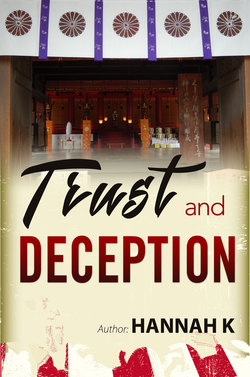Читать книгу Trust and Deception - Hannah K - Страница 22
На сайте Литреса книга снята с продажи.
Common Misunderstanding of “Ningen Sengen”
ОглавлениеGoing back to the story of the Emperor, there is another sad fact that majority of the Japanese people are taught, “GHQ forced the Emperor Showa to declare ‘I am not a living deity.’” in history class in the Japanese educational system. It is about so-called “Ningen Sengen.” The following year of the end of the Pacific War on January 1 in 1946, Showa Tenno issued an edict.
In the edict, he admonished Japanese people not to make vacant worship as if Tenno were a deity. He did not remark that he was a deity. He emphasized, “I was neither a deity nor am I a deity.” Major Japanese media all at once called the edict “Ningen Sengen.”
Ningen means a human and Sengen means declaration. In short, “Ningen Sengen” was a term coined by the Japanese major media. Showa Tenno was a first class biologist. He knew he was not a deity. So the media’s article was nothing but a fabrication.
From the historical point of view, Tenno’s original role was the highest “Shinto priest” until Meiji Restoration. It would be hard to define Tenno as a priest because Shinto was not a religion from the Meiji Restoration to the end of the Pacific War. However, Tenno served important traditional rituals to his ancestry deities as a priest in those days. The rituals were inherited from ancient times. Tenno had been a rather holy existence as a priest, not as a deity. His function was a little like that of the Pope of Roman Catholic Church. However, since they had to perform the role of “Emperor” in addition to their original role, the three Emperors (the Emperor Meiji, the Emperor Taisho, the Emperor Showa until the end of the War) were involved in the political affairs. At this point, they had to lead a kind of secular lives.
GHQ ordered the Japanese Government to dissolve Kokka-Shinto, State Shinto, which were the moral codes of the Meiji Regime. The issue here was the moral codes were taken advantage of by the Military Government. The typical materialized object was the memo,“Senjin-Kun.” It was proclaimed by Tojo’s Cabinet. Clearly, the memo “Senjin-Kun” reflected State Shinto. This was the reason GHQ resolved State Shinto. Furthermore, GHQ wanted Shinto to be a religion. However, it took time to deal with the definition of Shinto because Shinto priests insisted that Shinto was not a religion. Therefore, GHQ decided to impose heavy taxes on every property of Shinto shrines from the beginning of ancient Japan. As a result, Shinto filed a plea to GHQ. According to the plea, Shinto wanted to avoid incredible heavy taxes. GHQ accepted their plea. As you know, no religious body pays taxes.
Another story regarding Showa Tenno was that he never regarded himself as a deity or considered himself as a deity even before the Pacific War. The original role of Tenno in Japan had been a kind of moderator for more than a thousand years.
MacArthur had already decided not to punish Tenno before he met the Emperor Showa to keep peace in Japan. However, he was reluctant to meet the Emperor, Showa because MacArthur had no idea what the Emperor Showa was like.
When the Emperor Showa came to visit MacArthur for the first time, he did not even stand up to welcome Hirohito, but after he listened to Hirohito, he changed his attitude completely. When MacArthur said good-bye to him, he escorted Hirohito to the entrance of the headquarters of GHQ, he saluted Hirohito respectfully.
